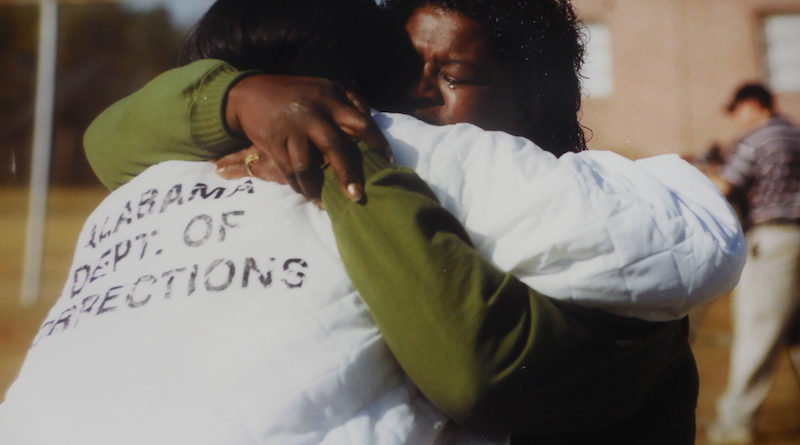AIM Provides Services to Alabama’s Incarcerated Mothers
By Rachel Leber
MONTGOMERY, Ala. — Aid to Inmate Mothers (AIM) is a non-profit in Montgomery dedicated to providing services to Alabama’s incarcerated mothers. Through its many programs to help these women, the nonprofit has a strong emphasis on enhancing the personal growth of and strengthening the bonds between inmate mothers and their children. This year is the 30th anniversary for AIM, having gotten its start in 1987.
AIM reunites mothers and children separated by prison, and has nine main programs that help incarcerated mothers and their children. The goal of AIM is to enrich the lives of both incarcerated mothers and their families through programs that provide education and support. “I like to remind people that children are really the victims in all of this — they are overlooked a lot of the time, and having their mother sent to prison really creates a huge disruption in the child’s life,” said Carol Potok, executive director at AIM. “I want people to remember the kids and remember that they haven’t done anything wrong.”

The original program that AIM was founded on 30 years ago is the Monthly Visitation program that brings families together each month for special visits within the prison, and gives children without means of transportation a chance to visit their mothers in prison. More than 100 children participate in the visitation program each month. “During this visit, children are allowed to hug and kiss their mother as much as they want, and they can also move to a quiet place and spend some quality time together,” said Potok. “All of our programs are important, but the visitation program is our signature program.”
AIM started a re-entry and aftercare class in 1998 called Project Reconnect. This program is designed to help prepare women who are getting ready to be released from prison, with hopes for as successful a transition back into the community as possible. The program is set up is set up for inmate mothers who are within one year of the end of their sentences. In the classes, facilitators teach courses on topics relating to life skills, job preparedness, STD awareness, human sexuality and conflict resolution.
Additionally, Project Reconnect brings in guests to speak on topics such as domestic violence, sentencing laws, Pell grants, social service benefits available to women when they leave prison and how to be a successful parolee. These classes usually serve about 30 to 50 women at a time, and take place in six-week blocks. Approximately 150 women per year benefit from the program, according to Potok.
One of the most popular programs at AIM — especially as related to volunteer participation — is the Storybook Program. The program started in 2000, bringing in hundreds of books and volunteers. In this program, volunteers film incarcerated mothers reading storybooks and sends the resulting DVD to the children of that inmate.
“This is one of our bigger programs, and to qualify, all you have to do is be is a mother,” said Potok. “We used to make the age cutoff for children 12 years old, but we had so many moms with older kids that wanted to participate in the program, we decided to offer this program to moms with children of all ages.”
This program served 800 women and their children last year.
AIM has a number of other programs, including transitional housing and a mentoring program. “In the future, we would really like to expand the education aspects of our programming, and would like to do more with re-entry than we are already doing,” said Potok. “We wish we could do more; sometimes the women have a state job or are in the trade school, and can’t attend our 9 a.m. classes as a result. We are always looking for ways to make our programming more accessible and available to those who want it.”

